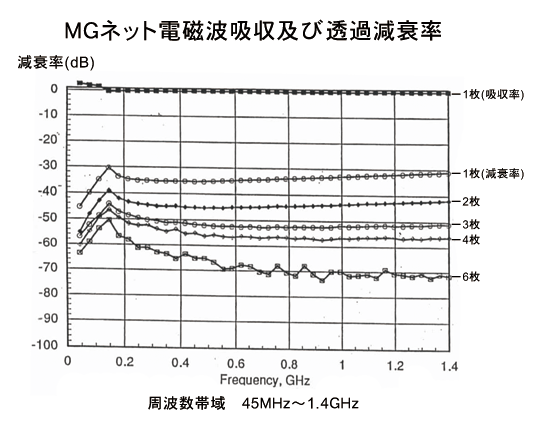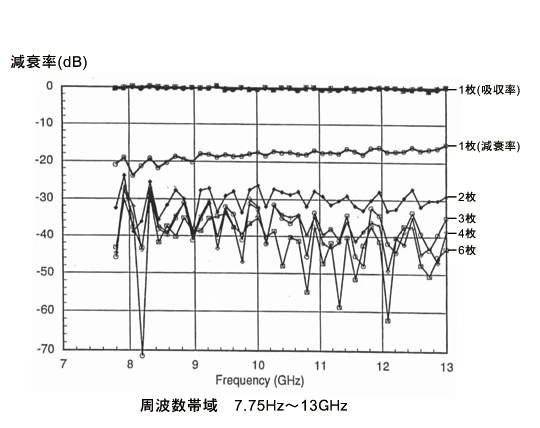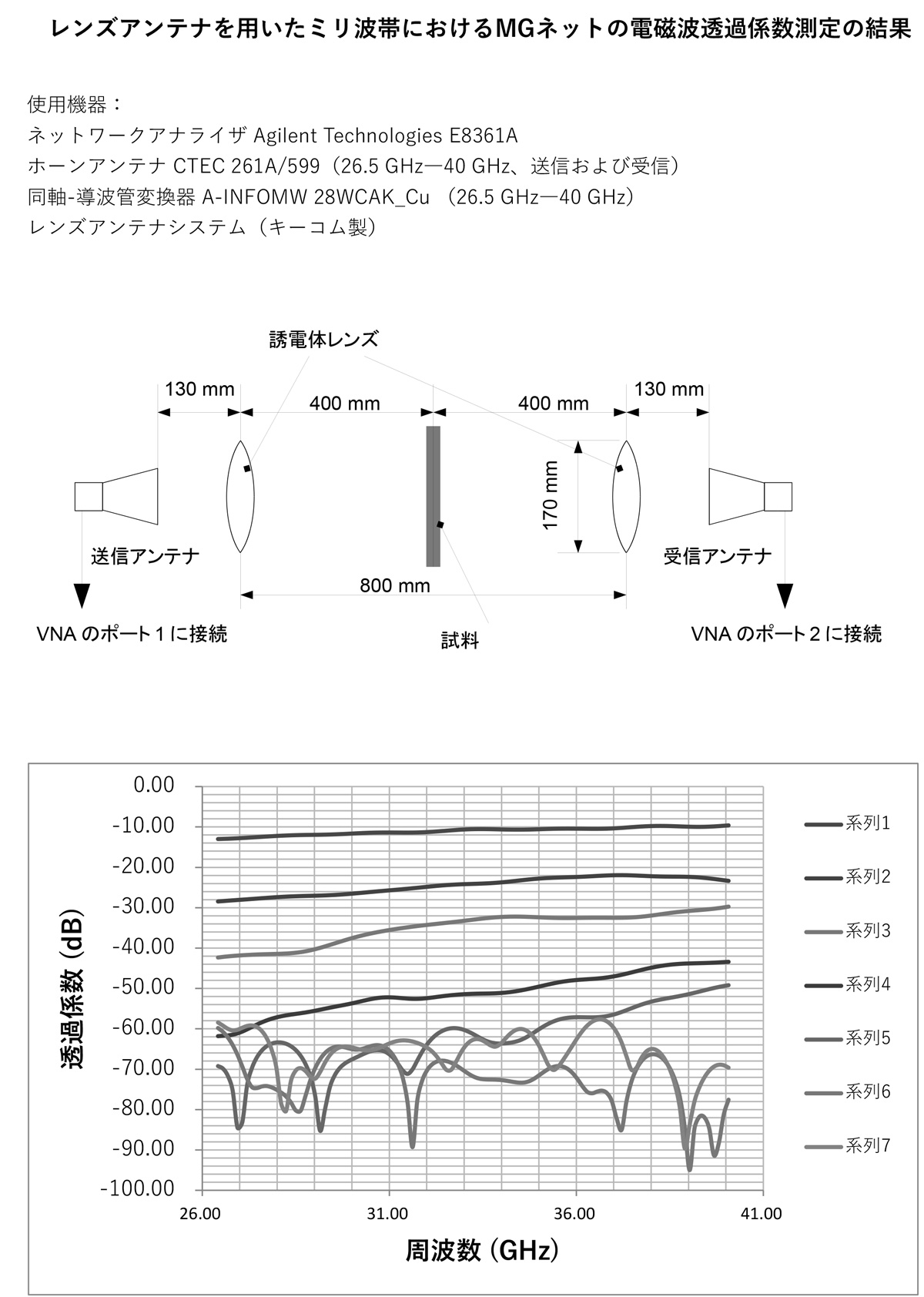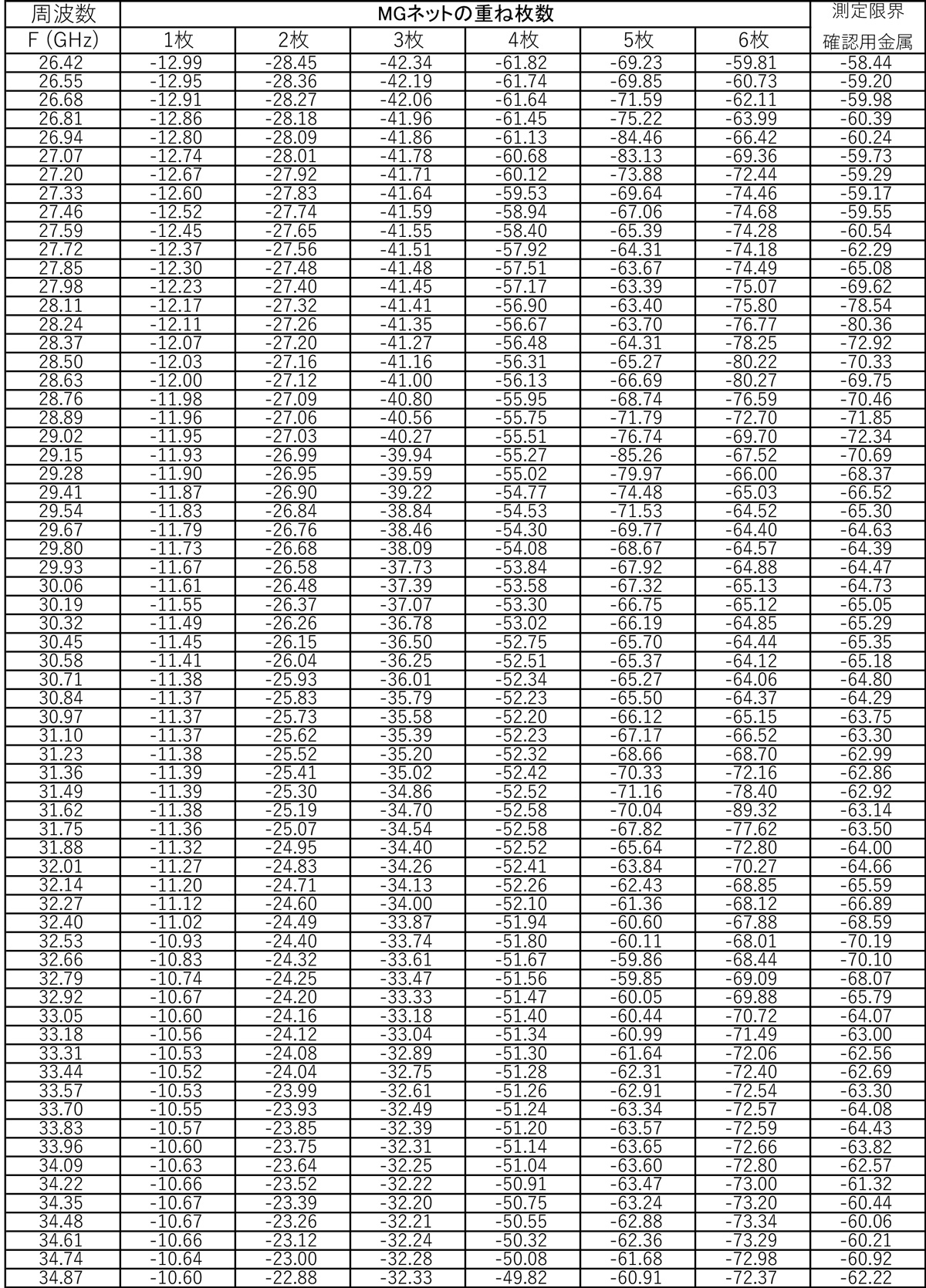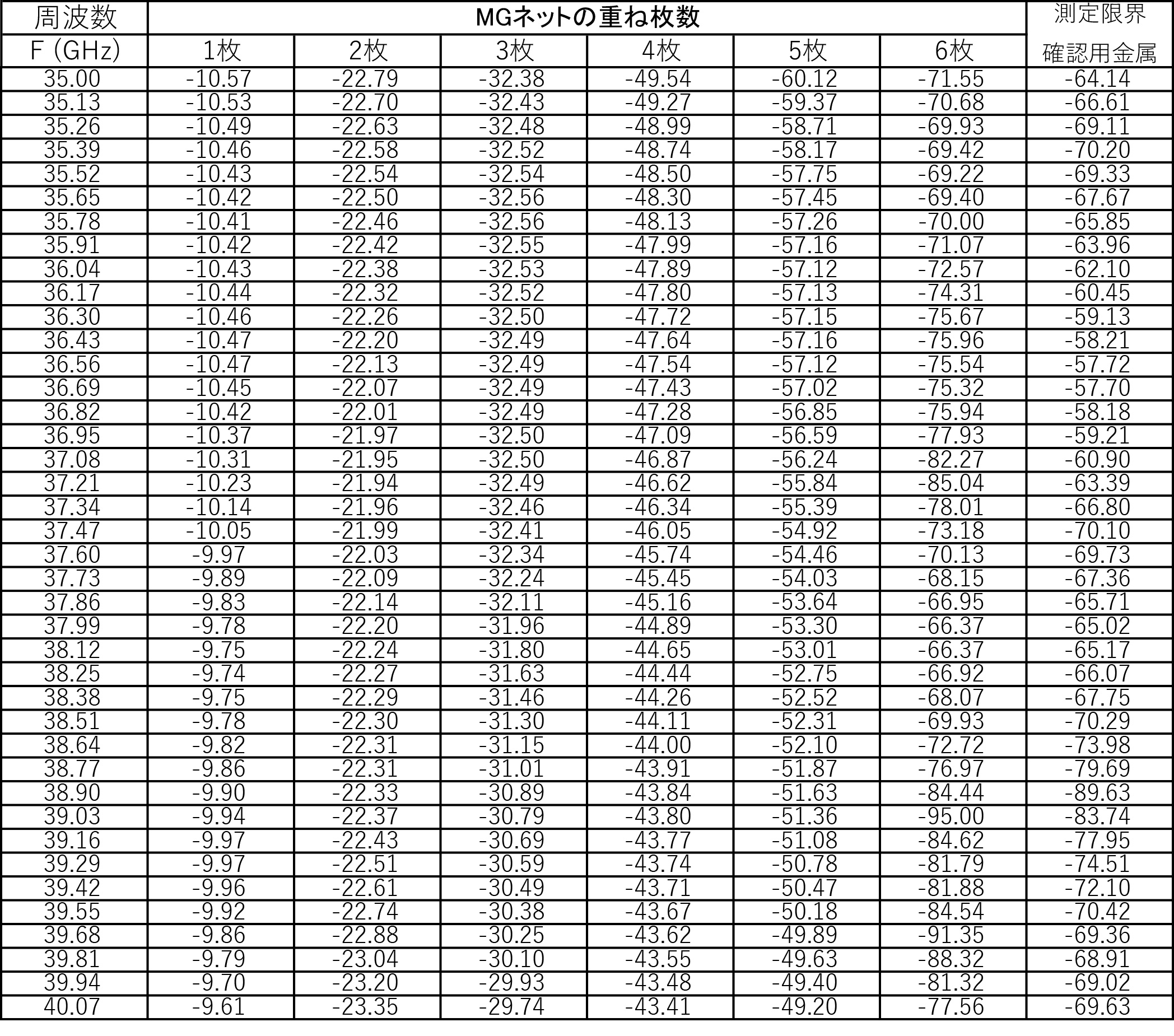Smart Key Electromagnetic Protection Pouch Menu(Tap to display menu)
EMC Countermeasure Products
Electromagnetic wave shielding performance
The"RelayBlock Free Bag" uses a new material called "MGnet for EMC countermeasures," which is made by weaving silver fiber (nylon coated with 99.9% pure silver) that blocks electromagnetic waves, which is also used in pacemaker protective clothing, into a honeycomb (hexagonal) mesh (mesh size approximately 1 millimeter) and then coating it with conductive acrylic to increase its durability.
"MGnet" is a material that combines the properties of nylon fiber (lightweight and flexible), silver (conductivity and electromagnetic shielding), and honeycomb mesh (translucency, ventilation and heat dissipation), and is used for a wide variety of electromagnetic wave countermeasures.
Electromagnetic Shielding Materials
For EMC measuresMGnet
Japan Patent No. 392205 / U.S. Patent No. US6.855.883.B1
Reflects high frequency electromagnetic waves
MG(Microwave Guard)net
- ・Blocks high frequency electromagnetic waves (100kHz to several tens of GHz)
- ・Anti-static (static)
- ・High durability (resistant to bending and friction)
- ・High light transmittance, breathability, and heat dissipation
- ・Ultra-lightweight(20g/㎡)
- ・Conductive rust prevention processing (performance maintained for more than 2 years)
- ・Long fibers reduce the production of fluff and dust
- ・カットしてもほつれない
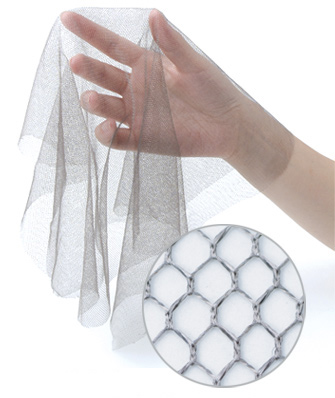
KEC method electric field shielding data
This is the electric field shielding data (in dB: decibels) when 1 to 4 sheets of MGnet are stacked for each frequency. ※40dB provides 99% shielding performance, and 60dB provides 99.9% shielding performance. If you want to completely block your cell phone from signal range, you need a shielding performance of 40dB or more, so please use 3 or more layers of MGnet.
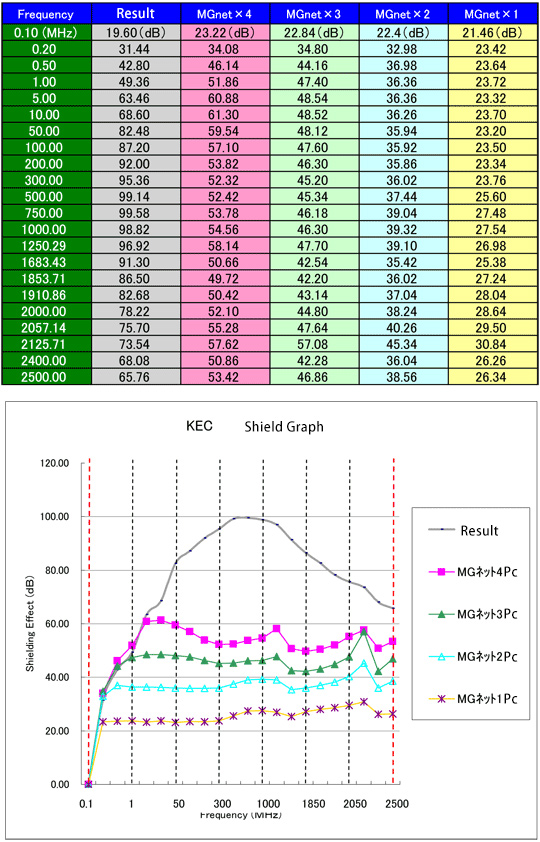
▲Comparison of shielding performance against near-field electric fields by overlapping MGnets (KEC method): Measurement Limit indicates the measurement limit value. It can be seen that overlapping MGnets improves shielding performance against high-frequency electromagnetic waves from 1 MHz to 2.5 GHz from 20 dB to 60 dB.
KEC method for measuring electric field shielding
Comparison of electromagnetic shielding performance by overlapping MGnets
A comparison was made of the electromagnetic shielding performance of overlapping MGnets. The shielding performance against near electric fields was measured using the KEC method as shown on the right. The results are shown in the table and graph above. These results show that overlapping MGnets improves shielding performance against high frequency electromagnetic waves from 1MHz to 2.5GHz.Measurement method for shielding effectiveness against near electric fields using the KEC method (Figure 1)
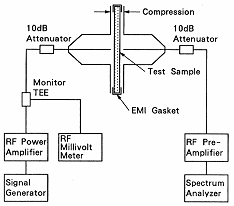
(Figure 1)
Free space method electric field shielding data
This is the electric field shielding data (in dB: decibels) when 1 to 6 sheets of MGnet are stacked for each frequency. Shielding performance evaluation of MGnet in each frequency band was carried out by HVS Technologies, Inc. (a specialist in electromagnetic absorbing shielding materials and test equipment attached to the Electro-Acoustic Research Center) in the United States. As a result, electromagnetic shielding performance was confirmed with a shielding rate of 30 to 40 dB or more at frequencies of 0.045 GHz to 1.4 GHz, and a shielding rate of 20 to 40 dB or more at frequencies of 7.75 GHz to 13.0 GHz. Details are shown in Table 2.
| Test Date | December 10, 1997 |
|---|---|
| Measurement Facility | HVS Technologies, Inc.(Electromagnetic Absorption Shielding Materials and Testing Equipment Specialty Center of the Electroacoustic Research Center, USA) |
| Measurer | Prof. Vijay K. Varadan (Center for Electroacoustic Materials and Device Engineering, Pennsylvania State University, USA) |
| Electromagnetic wave shielding material used | MGnet |
| Measuring Equipment | HVS Free Space Microwave Measurement System |
| How to Measure | Measurement of electromagnetic wave absorption rate and transmission attenuation rate of MGnet using HVS Free Space Microwave Measurement System |
| Measurement results |
|
